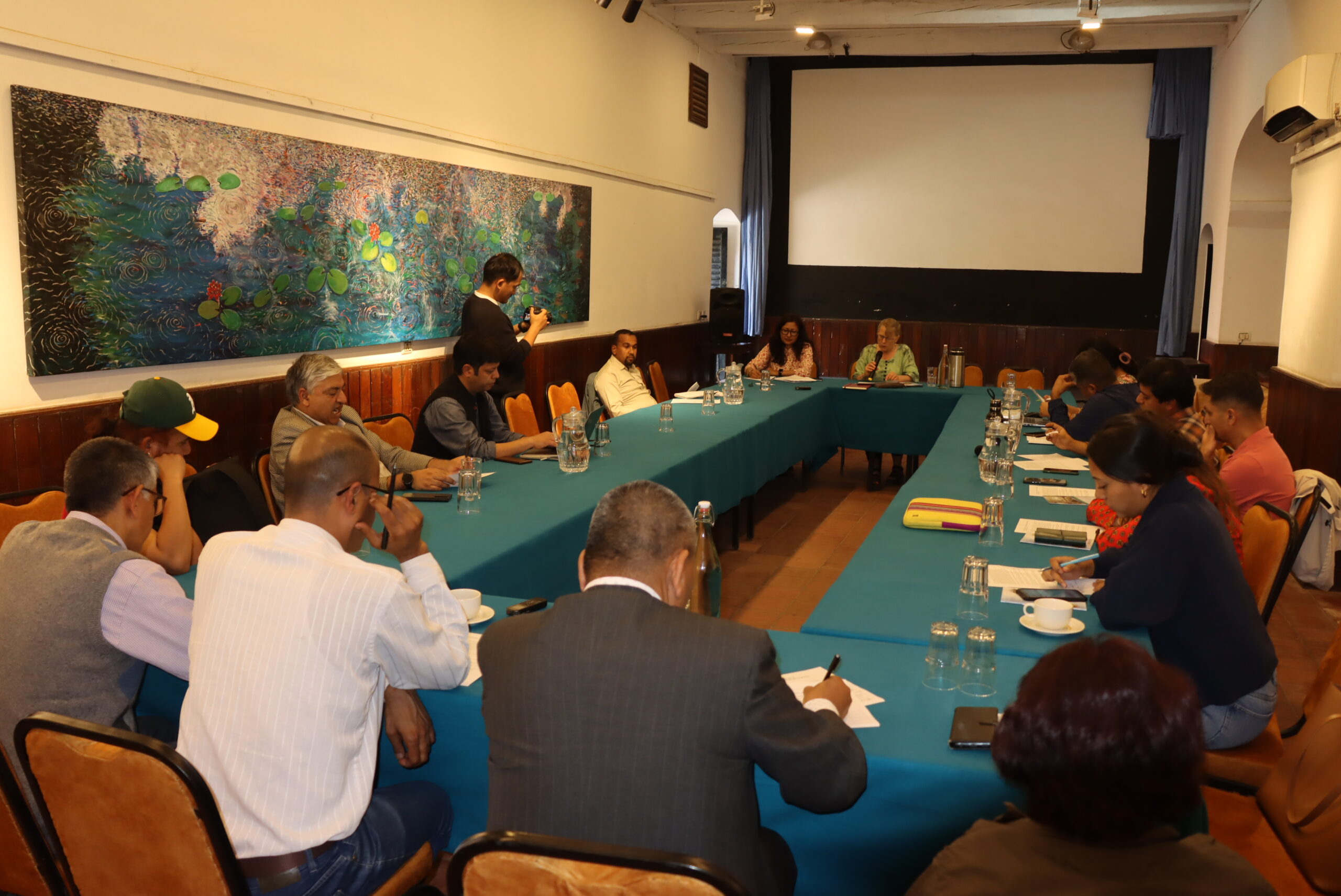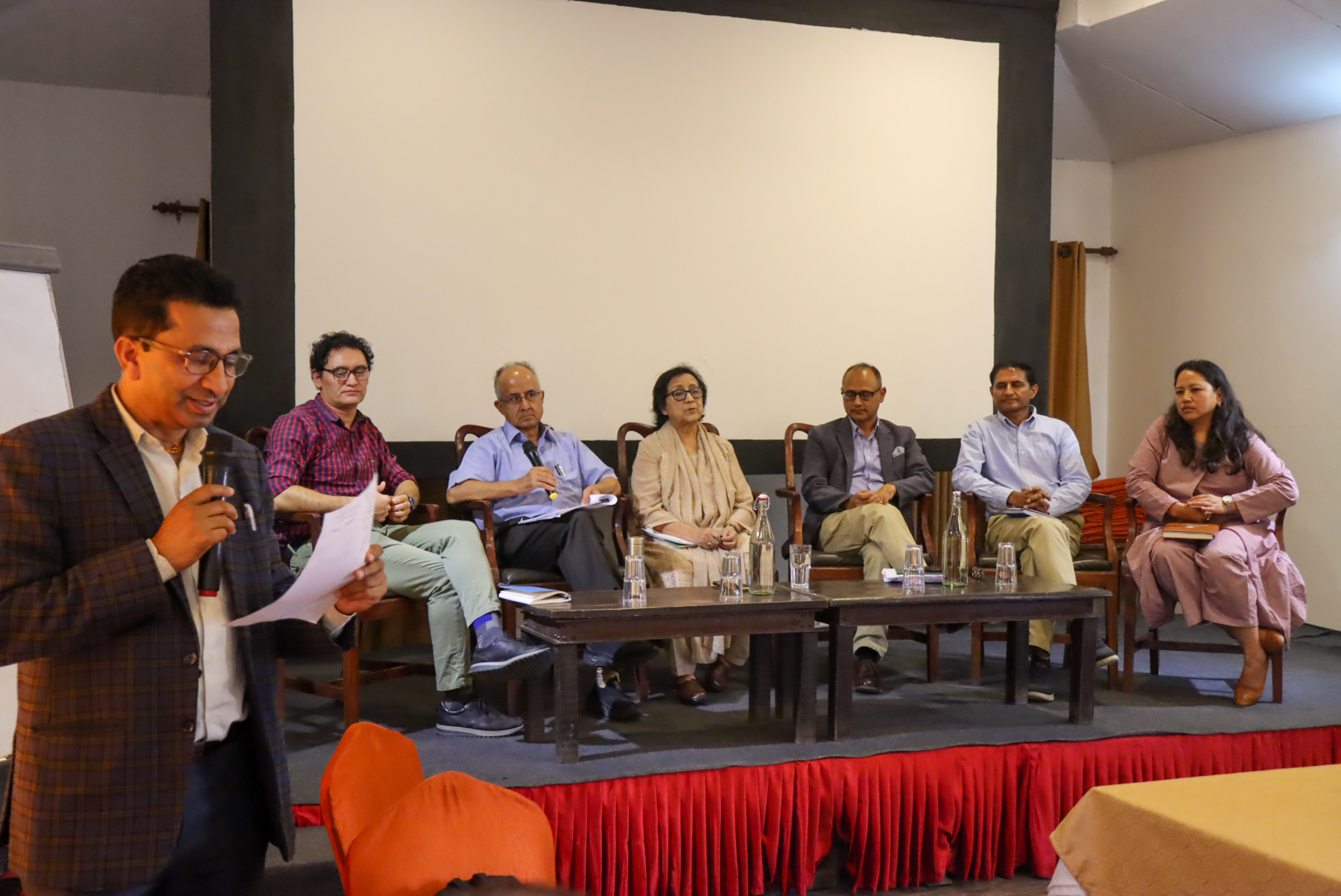Southasia Institute of Advanced Studies (SIAS) and the Dolakha District Federation of Community Forest Users Nepal (FECOFUN) jointly organized two separate workshops in Charikot, Dolakha during the third week of September 2023. On September 21st, a one-day residential workshop brought together representatives from FECOFUN, executive members of community forest user groups from different Palikas, and researchers from SIAS for the discussion. The workshop aimed to foster knowledge sharing on the changing dynamics of farming and community forest management, while also creating awareness about recent changes and provisions in forest management and utilisation regulations. Dr. Dil Khatri and Dr. Govinda Paudel from SIAS presented their research findings, highlighting the challenges of declining collective action and proposing strategies for community forestry groups to strengthen collaboration with local governments. Additionally, Bhoala Khatiwada provided valuable insights into the existing provisions of the community forest act and its revisions over time. Through reflective discussions, participants explored the current obstacles and challenges occurred in the community forestry management in the district’s evolving social and economic context. They also discussed ways in which FECOFUN could effectively advocate for the rights of community forest users, and made personal commitments to contribute to the improvement of their respective community forest user groups and FECOFUN.
Similarly, on 22nd of September a dialogue on the possibilities and challenges of the forest-based enterprises was organized. This dialogue brought together forest-based entrepreneurs, local government’s representatives, district level government authorities creating an important debate on issues related to forest-based entrepreneurship. Researchers from SIAS facilitated the dialogue, providing a platform for entrepreneurs to share their concerns and propose solutions. The entrepreneurs expressed frustration with the various policies provisions that hinder their access to forest resources and obtaining timber and other materials for their businesses. Similarly, the local government representatives and district forest officials acknowledged the practical and policy obstacles that needed to be addressed. The discussion concluded with mutual agreement by all participants that more open dialogues and further conversations must be initiated to resolving some practical hurdles that demotivated entrepreneurs and create an environment conducive to the growth of forest-based enterprises.




